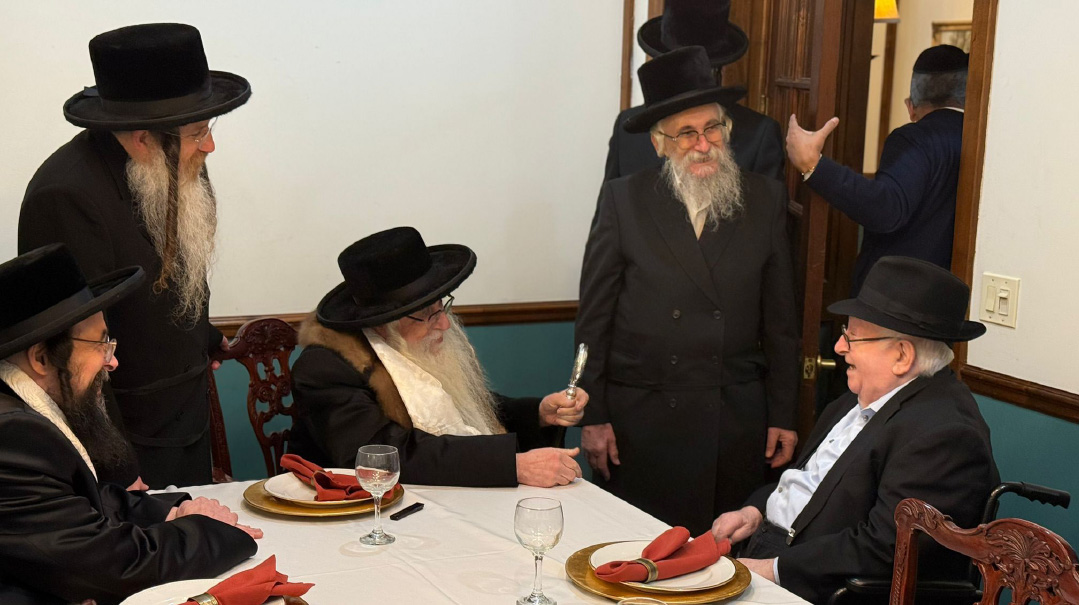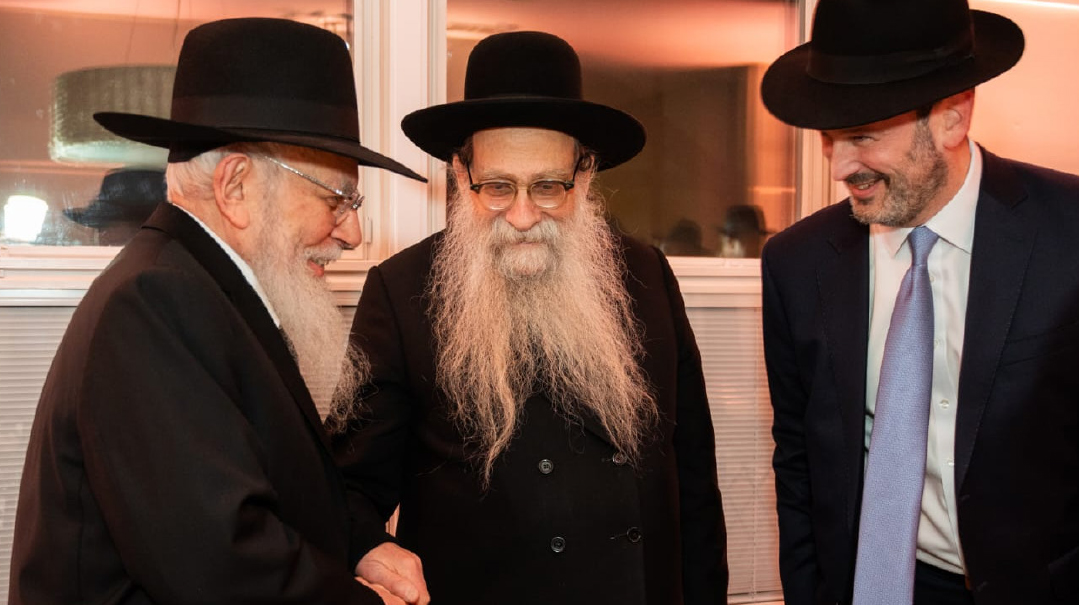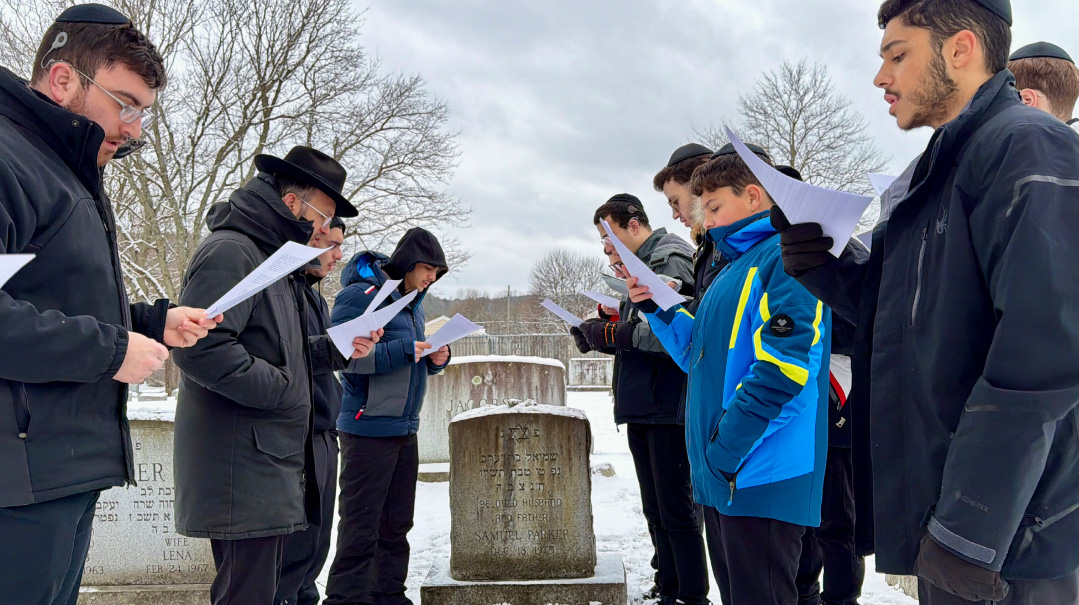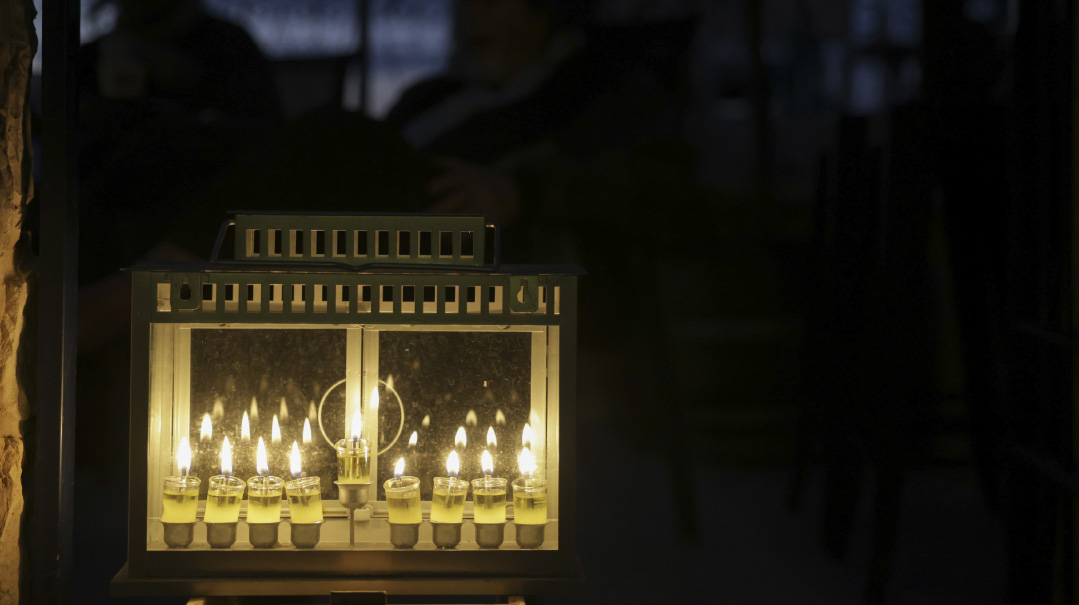The Moment: Issue 1028
| September 10, 2024His commitment to a kabbalah was stronger than the allure of any chocolaty delight

Living Higher
S
holi Rosenblum is the founder of the Brooklyn-based Lihisaneg organization, which, among other things, distributes packages to hospital-bound patients, spreading joy to cholei Yisrael Rachmana litzlan. Last week, Sholi shared with an audience the awesome power of a seemingly minor “Elul kabbalah,” which he heard from a customer at the Bagel Hole, the store in Brooklyn where he works.
The customer told Sholi that about ten years ago, he was living in Israel, struggling after having been laid off from his job as a baker at a popular food establishment. It was during Elul, and shortly after his employment ended, he attended a shiur where the speaker extolled the virtue of accepting a small yet personal kabbalah for Chodesh Elul to keep the month at the forefront of one’s conscious. The fellow resolved that for the duration of Elul, he would only eat only in a dignified manner, using a knife and fork. It was a relatively minor resolution, but it was meaningful.
Fast-forward two weeks. He was taking a midday stroll with his kids on an Ashkelon beach, when they were hit with the aroma of freshly baked goods from a nearby bakery. The family followed their noses and purchased several chocolate Danishes and proceeded to a nearby bench to indulge. But he had his kabbalah. His kids asked if he could skip his newfound insistence on more formal manners just this one time, but he was adamant that a kabbalah was an ironclad commitment. He’d go scout for a fork and knife to enjoy his pastries.
He finally located a small cafe that sold him a plastic cutlery set. When he cut open the Danish, a green liquid oozed out of it. He returned to the bakery and showed the proprietor the suspicious product. Horrified, the owner rushed to the back, where he saw an open bottle of motor oil next to the Arab employee who was responsible for that run. A quick sampling of the motor oil revealed that it was the same liquid sitting in the Danish.
The store owner immediately got to work tracking down all the pastries from that batch, and the shocked family turned to Hashem to thank Him for the open miracle
The story didn’t end there, though. The bakery owner struck up a conversation with him and when he discovered he was a baker and in need of a job, hired him on the spot — a double batch of blessings served to a man whose commitment to a kabbalah was stronger than the allure of any chocolaty delight.
To Save the Torá
Yaakov Lipszyc
The international tour of gedolim who are fundraising for Eretz Yisrael’s yeshivah world is now winding through Latin America, with stops in Mexico, Panama, and Brazil, seeking to engage the generosity of Sephardic communities in the region at this precarious moment. The month of Elul, known as “the month of rachamim and selichot,” holds a special place in the hearts of these communities, and marks an auspicious time for this cause.
The roshei yeshivos Rav Moshe Hillel Hirsch (Slabodka), Rav Yaakov Hillel (Ahavat Shalom), Rav Malkiel Kotler (Beis Midrash Govoha), Rav Abraham Salem (Ma’or HaTorah), the mashgiach Rav Don Segal, and Rav Shimon Galai, rosh kollel and mashpia, are continuing the campaign for Keren Olam HaTorah, initiated after the Israeli judiciary enacted draconian cuts against the yeshivah world. This fund has amassed $84 million in pledges in the United States and around £9 million ($12 million) in the UK. Projections suggest that the trip through Latin America will raise another $12 million.
The characteristic generosity of these communities sparked this monumental trip.
“When the gedolim traveled to the US to raise money for the Torah world, one of the philanthropists from our community asked, ‘How can it be that our gedolim are raising funds, and Brazil isn’t part of it?’ ” relates Rabbi Itzchak Chamma, a youth rabbi in São Paulo’s Beit Yaakov community, to Mishpacha. “So, alongside two other individuals, they formed ‘Friends of Brazil’ and donated $5 million during the US campaign. Immediately, people realized that Brazil had many individuals with financial means who deeply valued the world of Torah.”
Rabbi Chamma is part of the team organizing the talmidei chachamim’s visit to Brazil, their first stop on the journey.
The gedolim landed in São Paulo on a private flight Sunday morning. São Paulo, home to around half of Brazil’s 90,000 Brazilian Jews — 3,000 of whom are chareidi — is the country’s most significant Torah hub. In all three countries on this trip, the itinerary includes participation in selichot prayers, visits to kollelim to offer words of encouragement to the scholars, visits to Torah institutions, and of course meetings with key local donors (in Brazil alone, they hope to raise between $8 million and $10 million).
In recent years, the São Paulo Torah community in has seen exponential growth. The city’s Mekor Haim and Beit Yaakov communities have seen rapid growth in institutions and kollelim. Young men regularly attend leading yeshivot in Israel, the US, and, more recently, Gateshead. Additionally, the community maintains a close connection with Lakewood, where many of its balabatim organize trips and Yarchei Kallah.
“When I got married 15 years ago, there was only one kollel here,” Rabbi Chamma says. “Now there are eight. Brazil is experiencing a Torah explosion, especially in the Sephardic Halabi world. And we are very aware that the main reason for this growth is the merit of giving tzedakah to support the world of Torah.”
After Brazil, the next stop is Panama, where the Jewish community benevolence belies its small size. The gedolim receive a warm welcome at the airport before heading to the main synagogue to participate in selichot. They then meet with local avreichim and gather with principal donors in a downtown hotel, where it is estimated that around $2 million will be pledged to support Torah.
The Panamanian community, built and led for 57 years by the legendary Rabbi Zion Levi z”l until his death in 2008, now headed by Chief Rabbi David Peretz, is known for its deep commitment to Torah and kashrut observance, and its donors are reliable supporters of Torah institutions worldwide.
The journey’s final stop is Mexico, one of the largest Spanish-speaking Torah centers. The gedolim’s arrival is being coordinated through the tireless efforts of Rabbi Yaacov (Jack) Hilu —a vital link between Mexico and Lakewood — and Mr. Elías Dayan. The entire community is mobilizing to prepare an unforgettable event. Mexico City, the country’s capital and the undisputed center of Mexican Torah life, is home to four major communities (Ashkenazi, Turkish, Halabi, and Shami), all of which have agreed to suspend activities to ensure nothing conflicts with the gedolim’s visit.
Mexico is home to more than 3,500 chareidi families, the vast majority of whom are of Halabi or Shami descent. It has become customary for these families to send their children to Israel to study for several years, and many remain there after marriage to deepen their Torah learning. Every major yeshivah in Israel has at least one Mexican student. Moreover, many prominent local donors have shown strong commitment to the Torah world, and it is expected that this visit will raise an additional $5 million in support.
Among those working had to ensure the event’s success is Rabbi Amram Anidjar, a well-known speaker and director of tutorah.tv, which is broadcasting the event live worldwide. Rabbi Anidjar, one of Latin America’s most-recognized rabbinic figures, emphasizes the importance of gratitude.
“The first thing we must mention is that what the Mexican community is doing for the gedolim is, above all, hakarat hatov,” he explains. “None of our rabbis would be able to serve the community if they hadn’t grown in the olam hayeshivot. And we wouldn’t have the quantity and quality of avreichim we do without sending them to Israel to strengthen their Torah learning, returning as great talmidei chachamim. So first, this is hakarat hatov.
“And second, we see this as an investment. We want our children, grandchildren, and great-grandchildren to continue going to yeshivot in Israel. If that world collapses, we’ll have nowhere to send them to grow spiritually.”
(Originally featured in Mishpacha, Issue 1028)
Oops! We could not locate your form.







